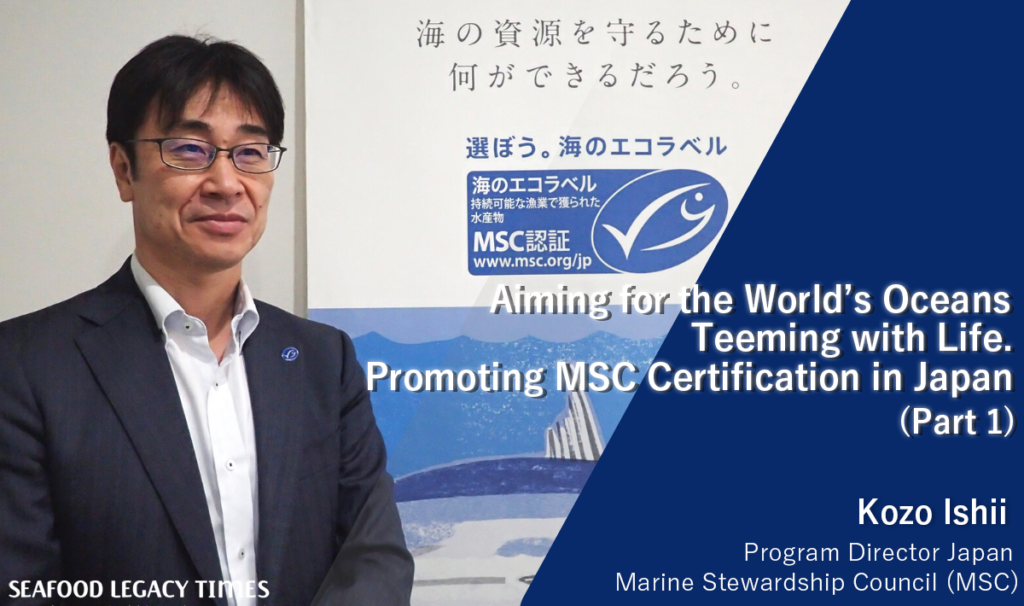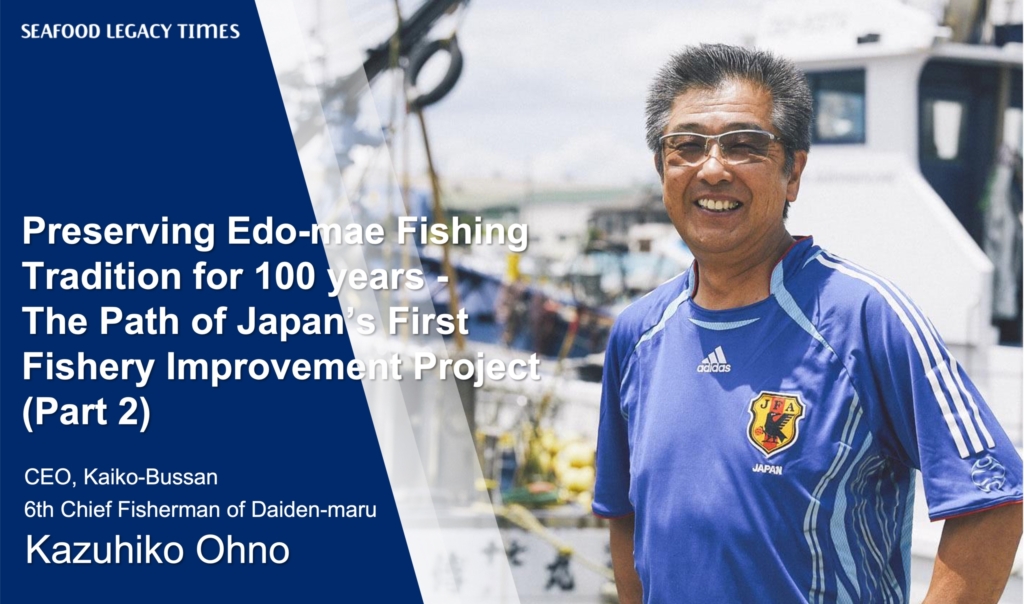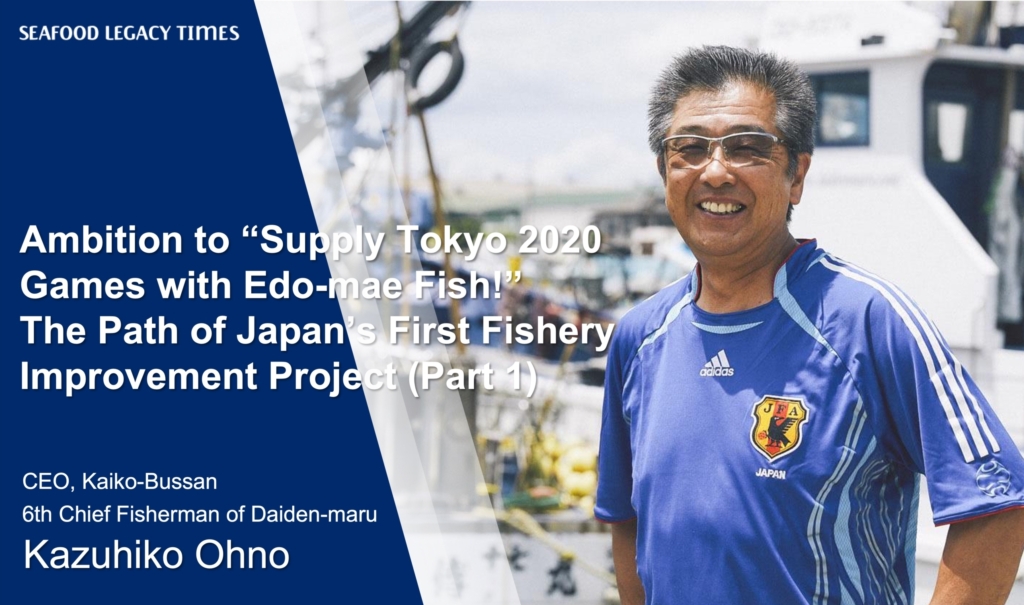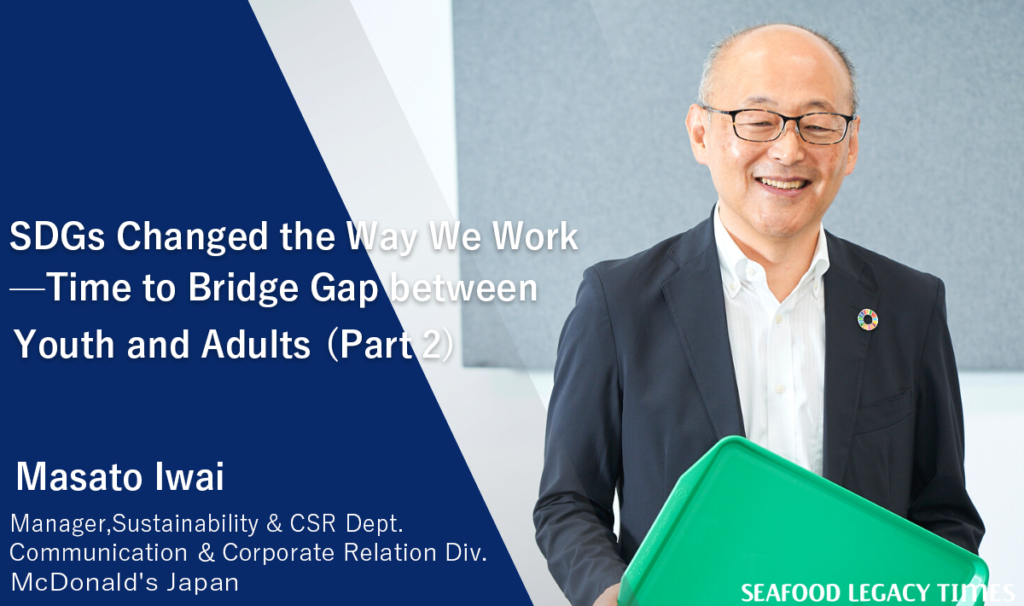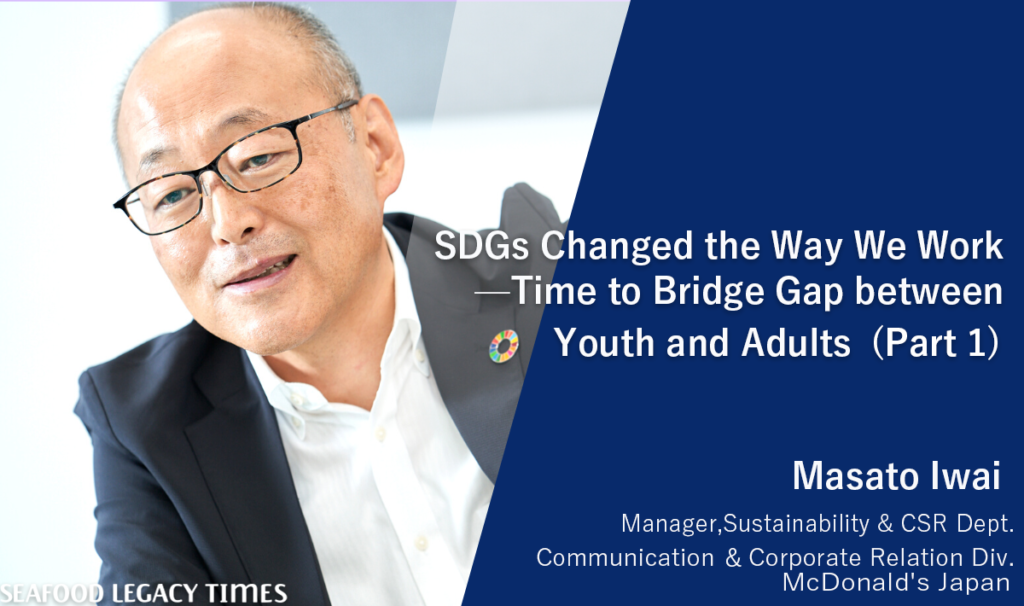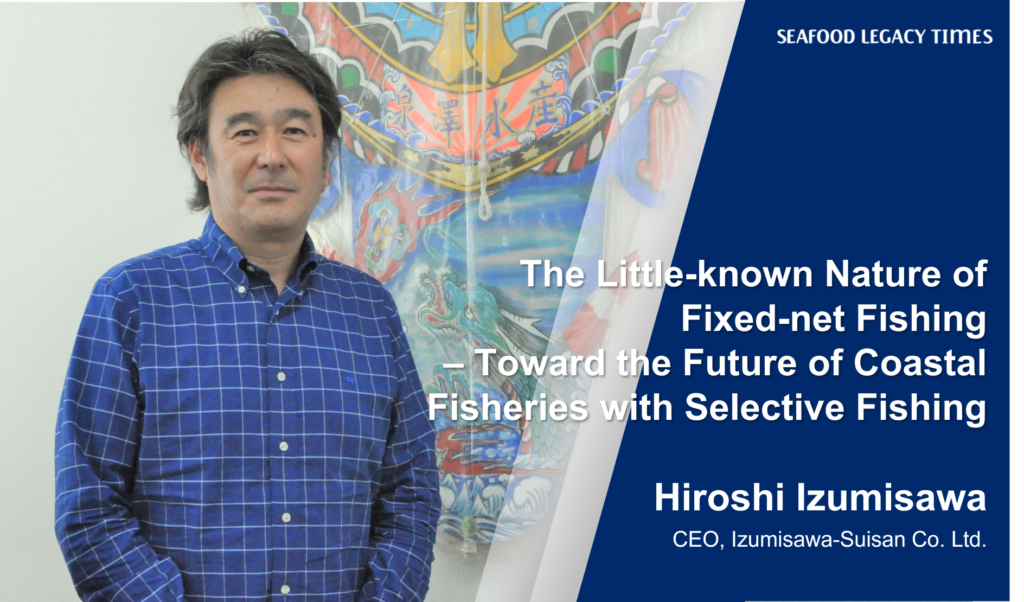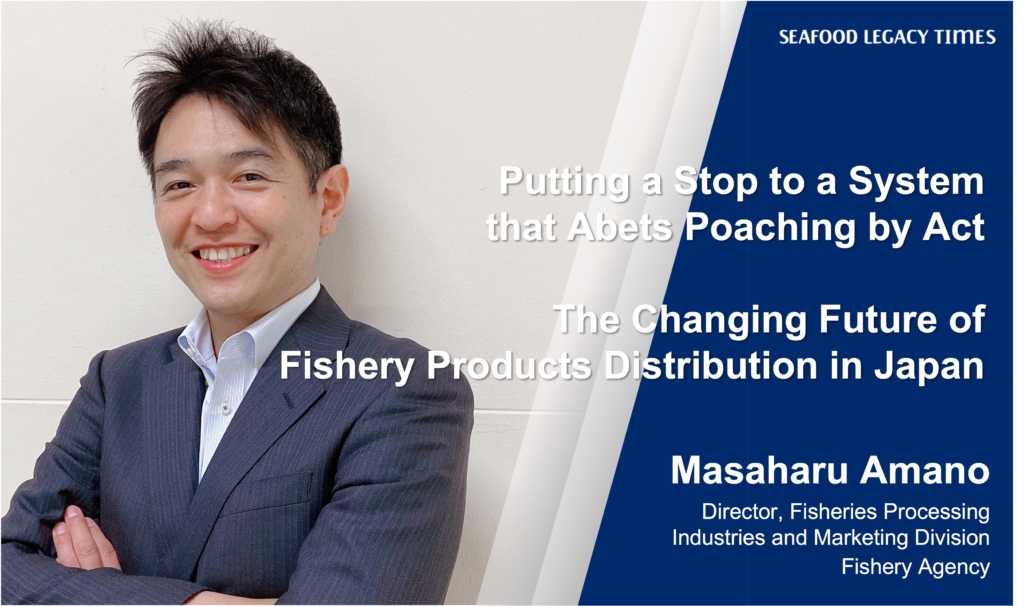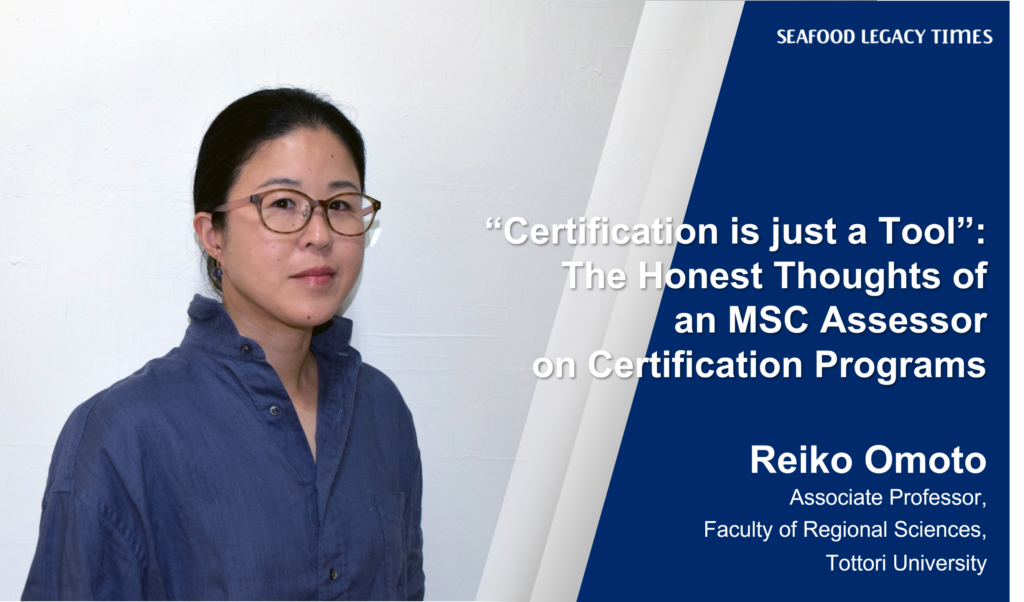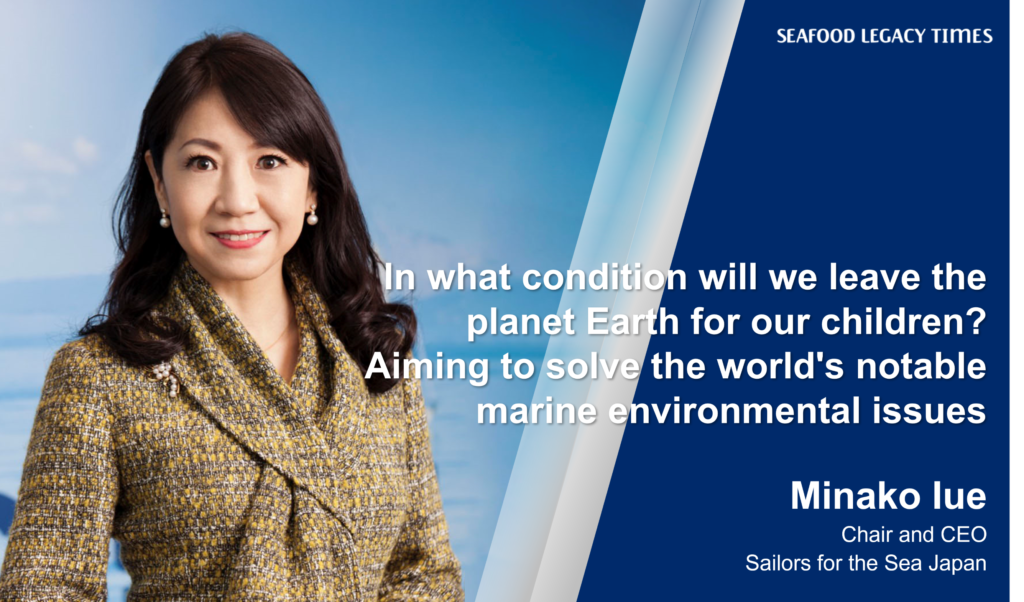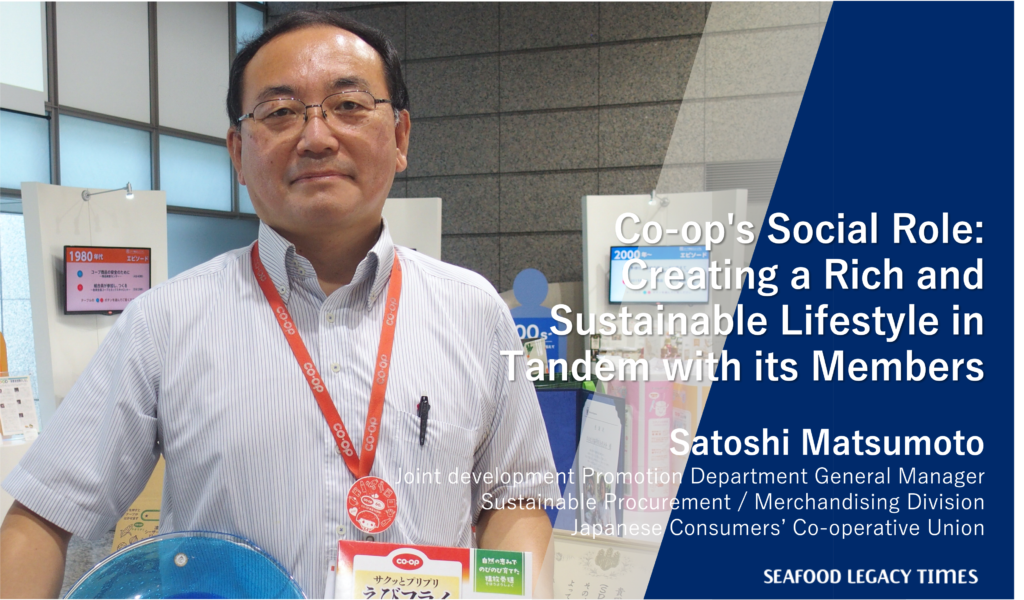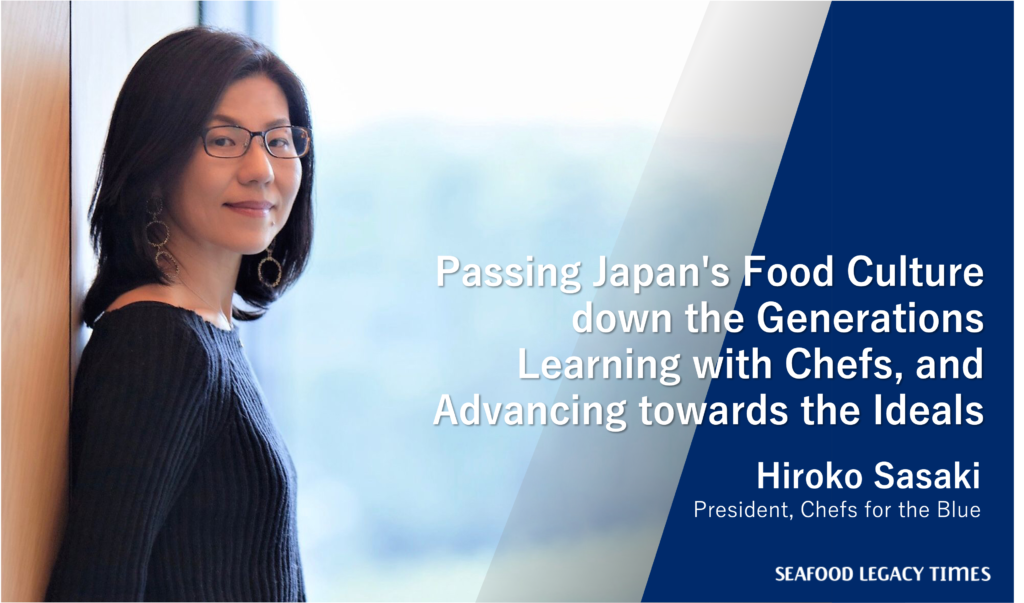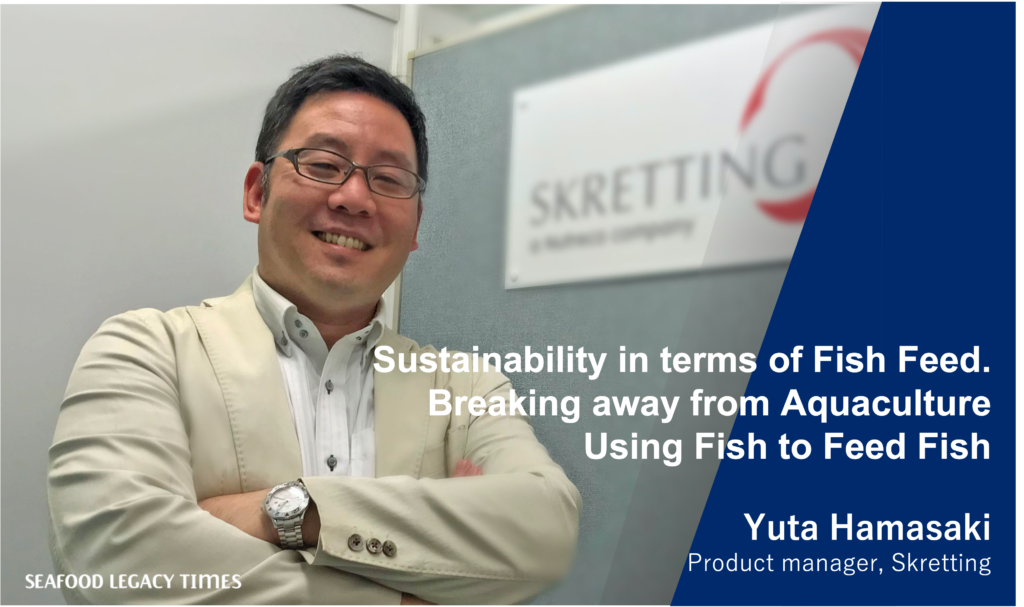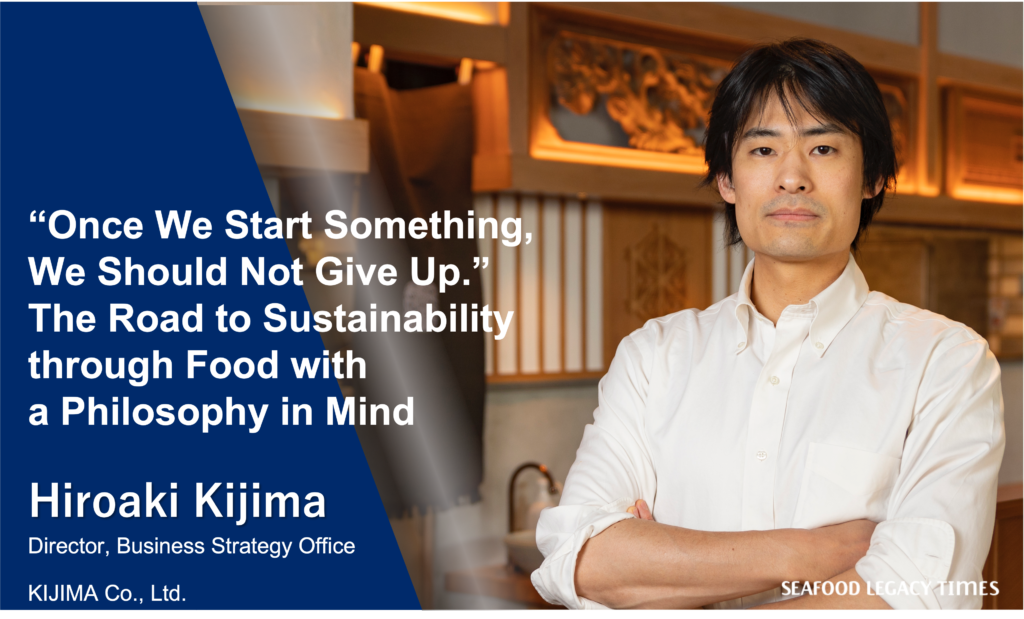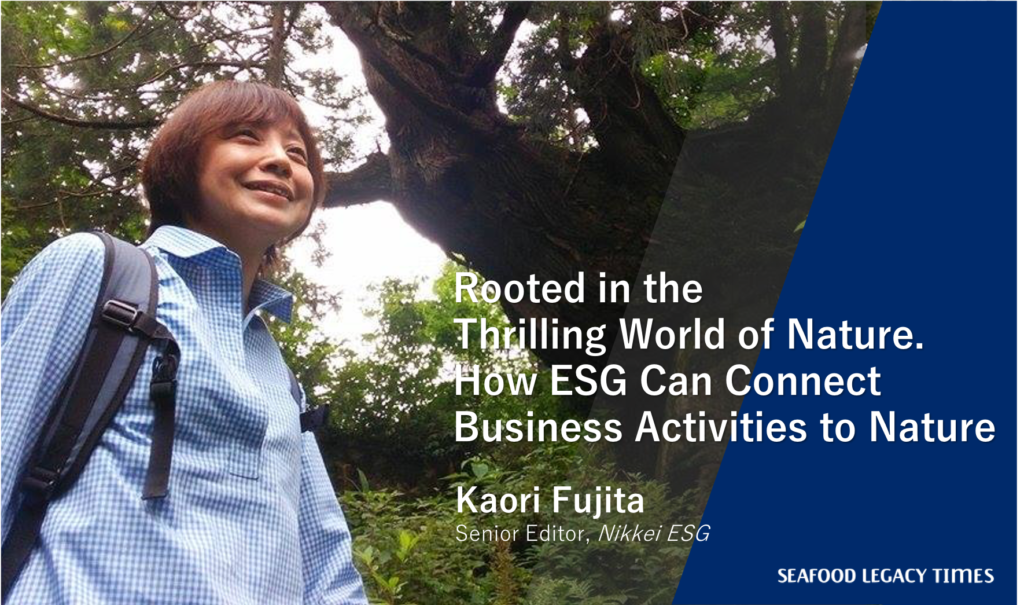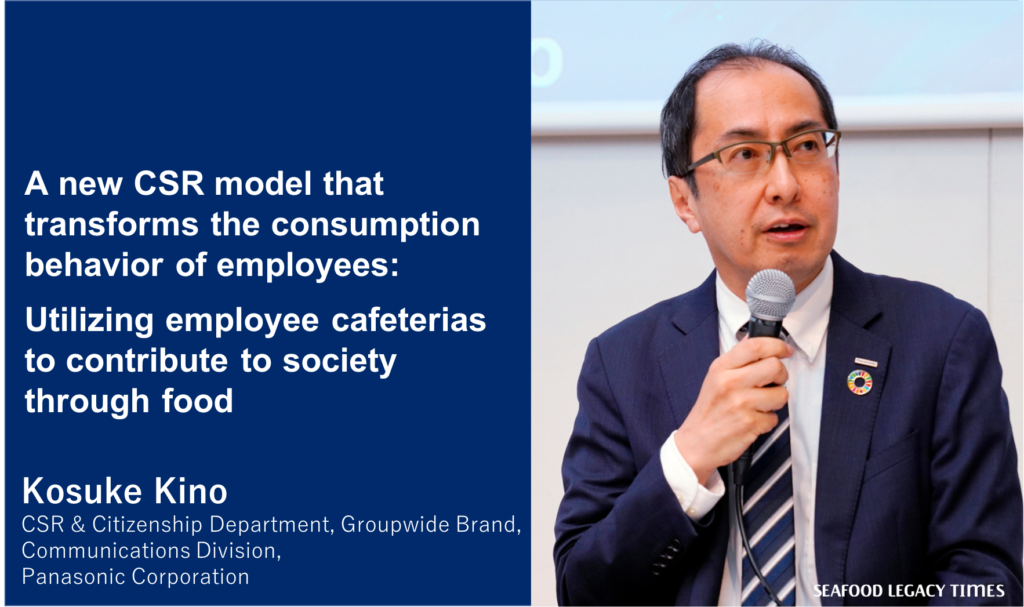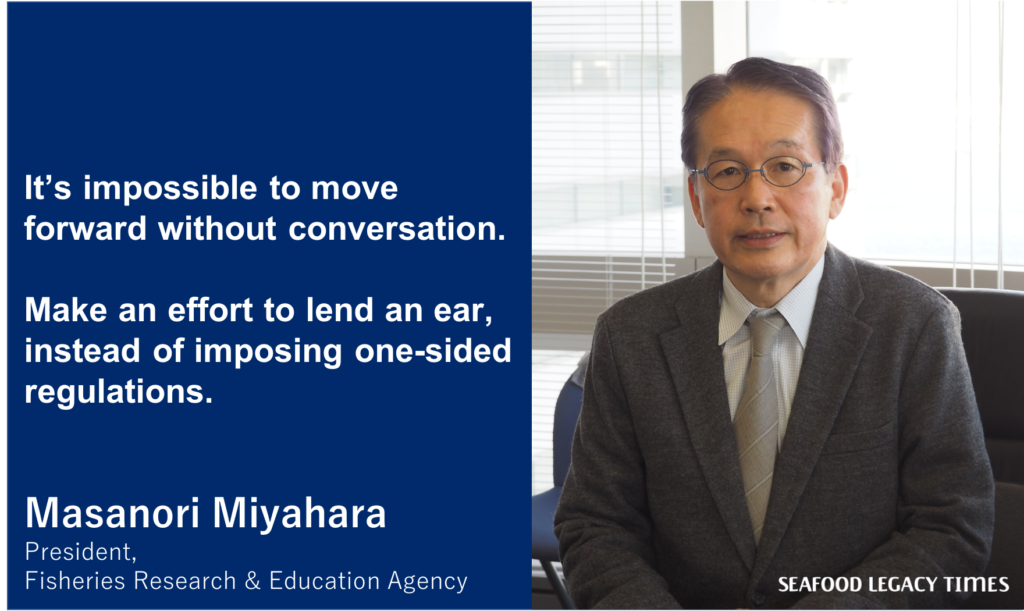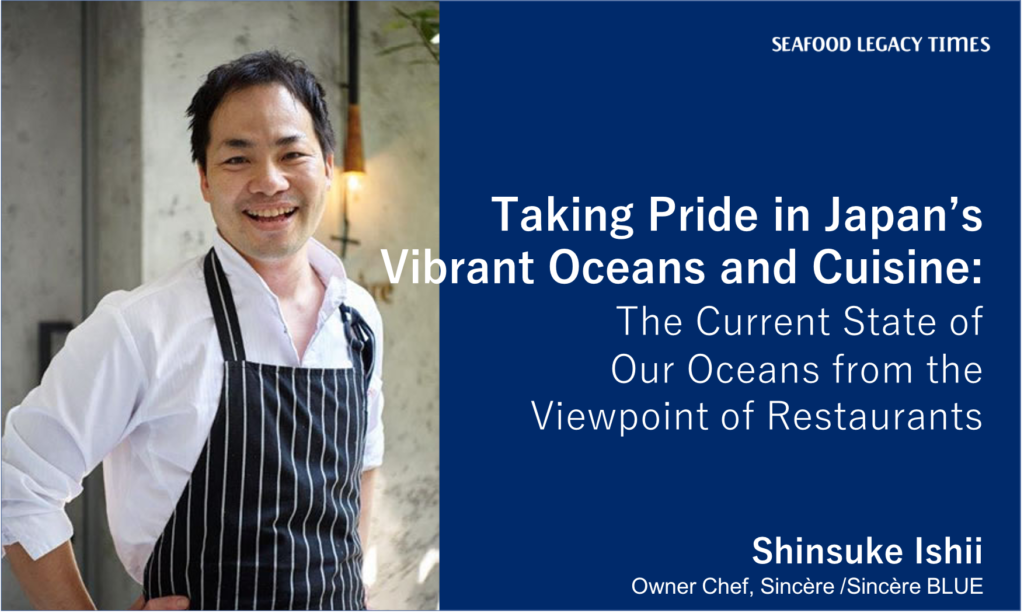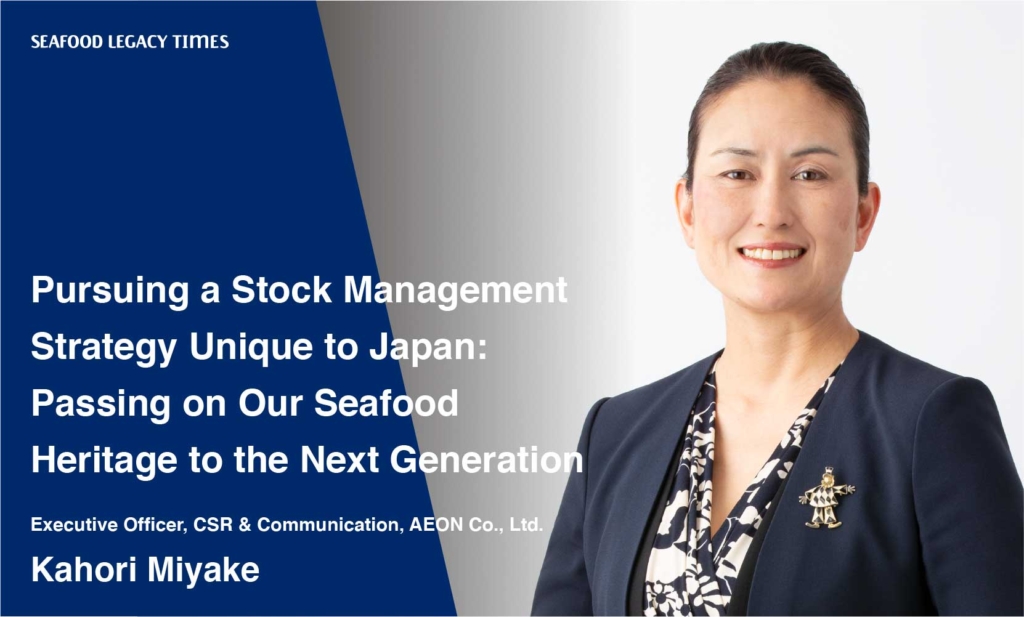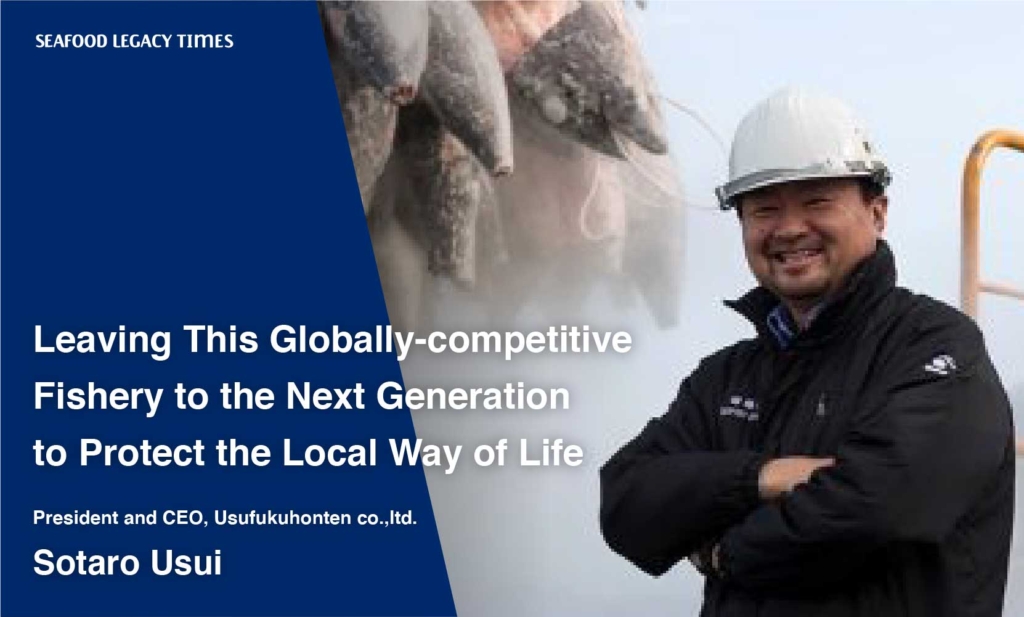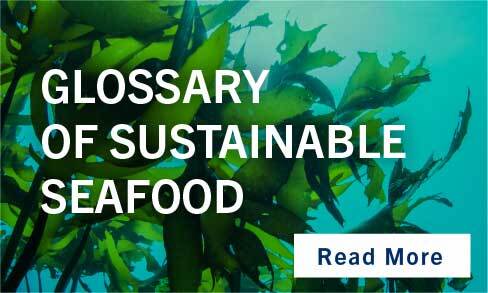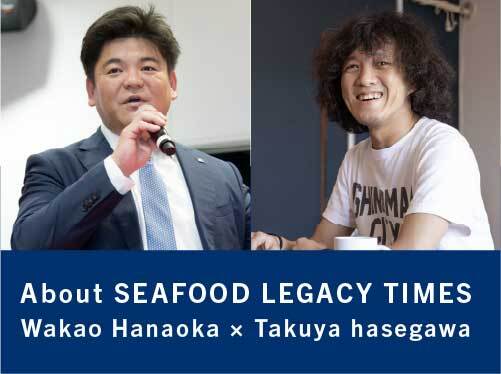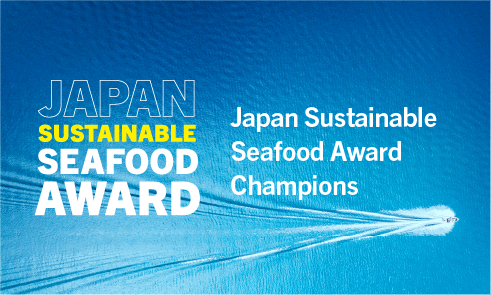
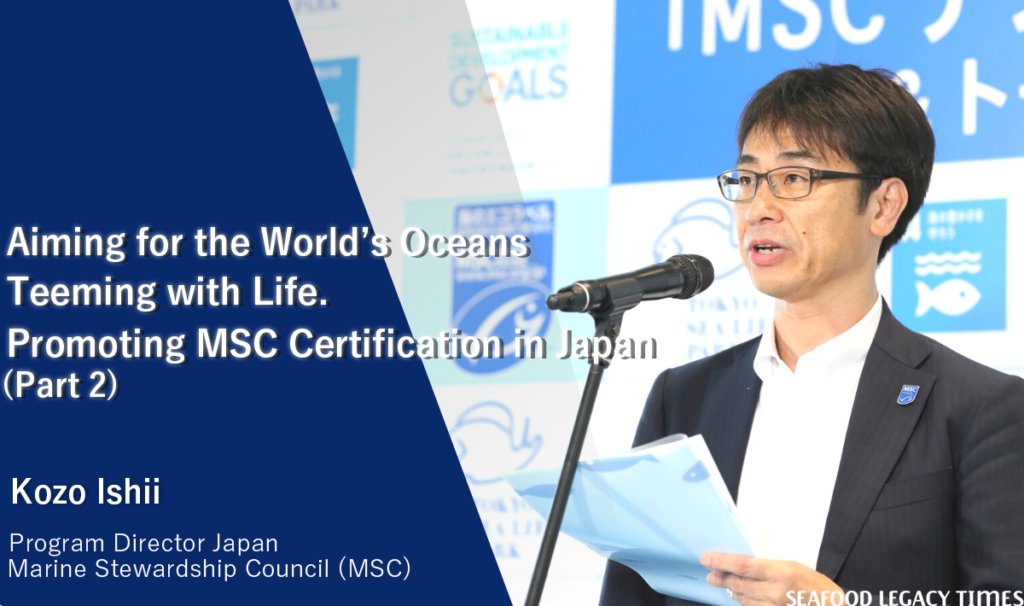
The blue MSC label is a certification of natural seafood products caught from sustainable fisheries that are properly managed with consideration for fishery resources and the environment.
Although awareness of the MSC label is still relatively low in Japan, recently opportunities to see seafood products with the blue MSC label on store shelves have been increasing. This is due to the persistent and still ongoing efforts from the people involved.
We asked Mr. Kozo Ishii, Program Director of MSC Japan, who has been working to promote MSC certification in Japan, how he views the current situation, and how he is addressing various challenges, we interviewed about the motivation behind his tireless efforts.
―― What is your view of the impact of postponing the Tokyo 2020 Olympic and Paralympic Games, which could have been a great opportunity to promote sustainable seafood, due to the spread of COVID-19 infections?
It is true that we put effort into trying to use the The Tokyo 2020 Games as an opportunity to promote awareness of MSC certification and sustainable seafood. It was postponed, though, and the COVID-19 pandemic also caused a shift in public opinion toward the Olympics, so we did not end up actively promoting anything through that event.
Nevertheless, during discussions about the procurement policy for the Olympics, sustainable procurement standards were called for, and it was widely communicated to fishermen and seafood companies that all seafood, including MSC-certified products, had to be sustainably sourced. I believe this did have quite a significant impact.
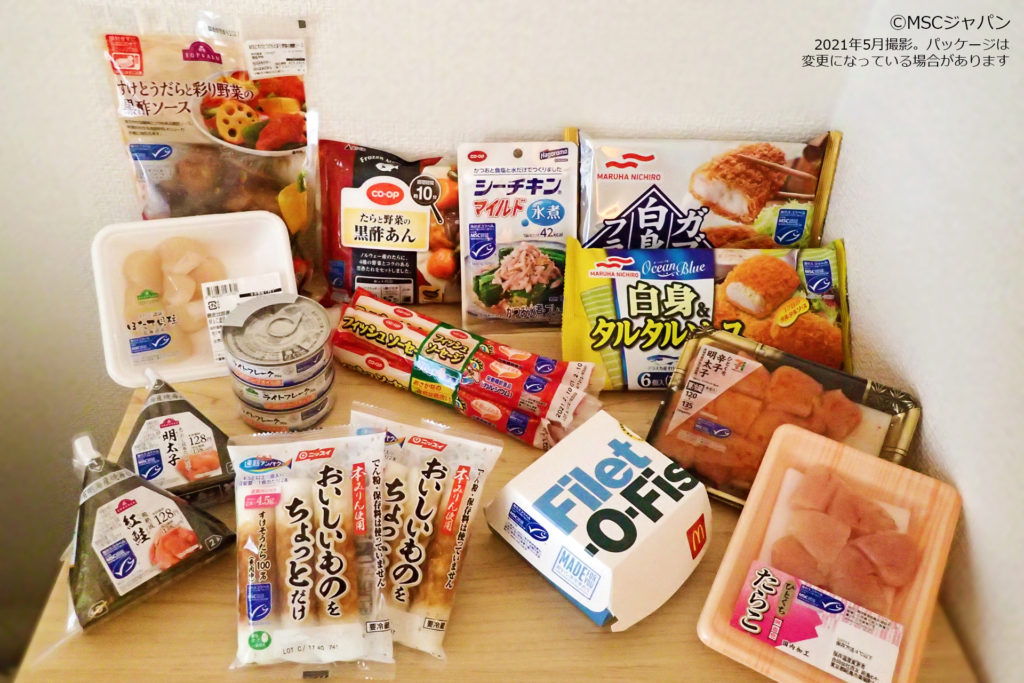
―― According to a consumer awareness survey conducted in 23 different countries by the MSC, recognition of the blue MSC label in Japan has increased greatly, from 12% in 2018 to 19% in 2020. Mr. Ishii, what are your thoughts on this change in Japanese consumer awareness?
Certainly, if you look at the numbers, public recognition is still at a low level compared to Europe and America, but recently there have been a lot more people talking about MSC certification on social media. I monitor this and check the numbers on a daily basis, and this was not the case until a few years ago. It also depends on what you mean by recognition, because I think that in the past, there were probably many people who saw the ecolabel but did not know what it meant. From now on, there should be more and more people who understand the meaning behind the label.
―― On the other hand, some people have said that Japanese consumers are still not very interested in sustainability, and that it may be difficult for the approach of buying only eco-labelled products to gain traction among the public. As someone on the side of promoting ecolabelling, what do you think?
We have never thought that we should completely eliminate all non-certified seafood products. Our goal is for people to put certified products on the shelves, even if just a few products. Of course, our ultimate goal is to get MSC certification for all natural seafood products.
As for interest in sustainability, young people, from elementary school students to university students, are already extremely interested in it, perhaps because of the recent emphasis on education about the SDGs. These young people will become the purchasers of the future, and I believe they will consider sustainability and ethics as important factors when deciding what to buy. It may take time, but I believe that Japan will change as well.
―― A comedian group, Cocorico member Naoki Tanaka became an MSC Ambassador in 2018. What do ambassadors do?
I believe that companies handling MSC-certified seafood and processed foods are also hoping that more consumers will recognize the blue MSC label and decide to purchase products with the label. In order to further contribute to this goal, we are putting our efforts into consumer-oriented activities, one of which is our annual campaign on World Oceans Day on June 8th. We held the campaign online in 2020 and 2021. Mr. Tanaka, who does Cocorico for Yoshimoto Kogyo, helps us with this as part of his role as an MSC Ambassador.
Thanks to Mr. Tanaka, we were able to reach a different audience than just the people interested in buying sustainable seafood. Ultimately, it is very important to reach out to a wider base of supporters.
Yoshimoto Kogyo is also contributing to popularizing the SDGs, and they created a promotional video in collaboration with the United Nations Information Centers. Given their enthusiasm, we asked Mr. Tanaka, who loves animal life, to help us. We told him about MSC’s activities, and got him to agree. Recently, he has been studying a lot and is even asking us specialized questions.
In the beginning, media coverage of us was mainly focused on comedy, but this year, other entertainment media has also started covering MSC certification and the blue MSC label.
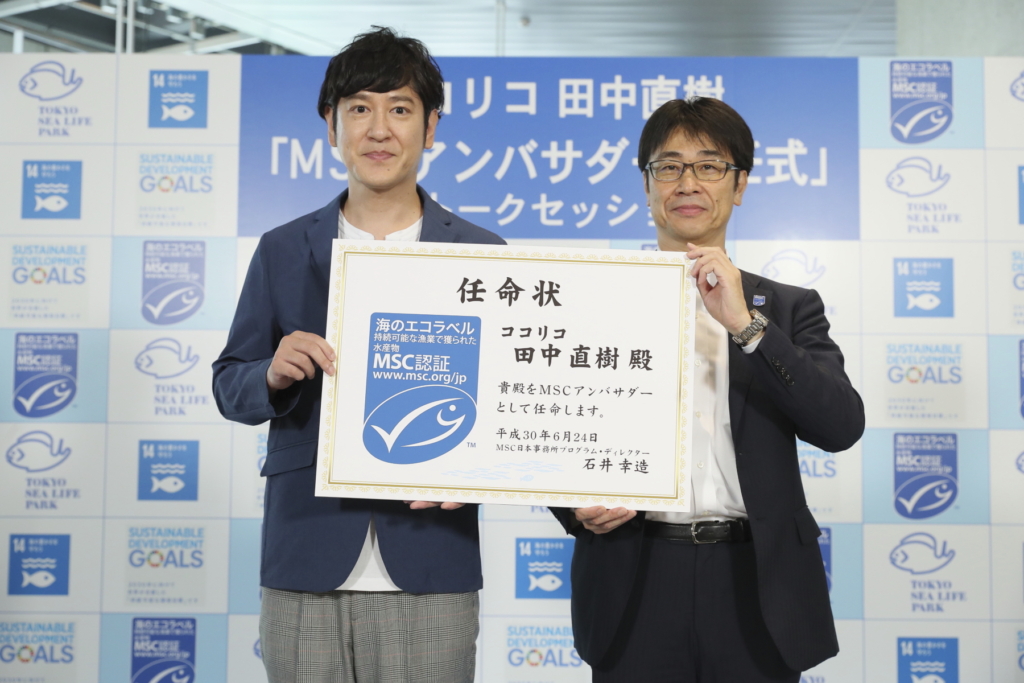
――What initiatives to continue promoting the adoption of MSC certification do you have in mind for the future?
There are 12 fisheries in Japan that have been certified according to the MSC Fisheries Standard, which is about 10% of Japan’s total fishery output. Many of the eco labelled products sold in Japan are made from seafood imported from overseas, and retailers and restaurants carrying MSC-certified products are always asking us to certify more domestic fisheries.
To acquire the MSC Fisheries Certification, the standards of sustainable resource usage, minimizing impact on the ecosystem, and effective fisheries management must be met. These hurdles are quite difficult to overcome, but more and more people in the fishing industry are becoming interested in getting certified. We would also like to collaborate with other initiatives, such as the Fishery Improvement Projects (FIP), so that we can be fairly confident of successful certification during the process leading up to the final assessment.
Sales of MSC-certified products are still limited to certain retailers. Unlike in Europe and America, where a few major retailers have a large market share, there is an extremely high number of retail companies in Japan, so we need to work on getting more companies to handle MSC-certified products. We have not yet done enough to reach out to restaurants, especially sushi chains, so this is an area where we would like to do more in.
―― Mr. Ishii, what motivates you to continue working to promote MSC certification?
Well… in my previous job, I worked in the field of Official Development Assistance (ODA) for ten years, but I didn’t really understand how my work actually contributed to the goals.
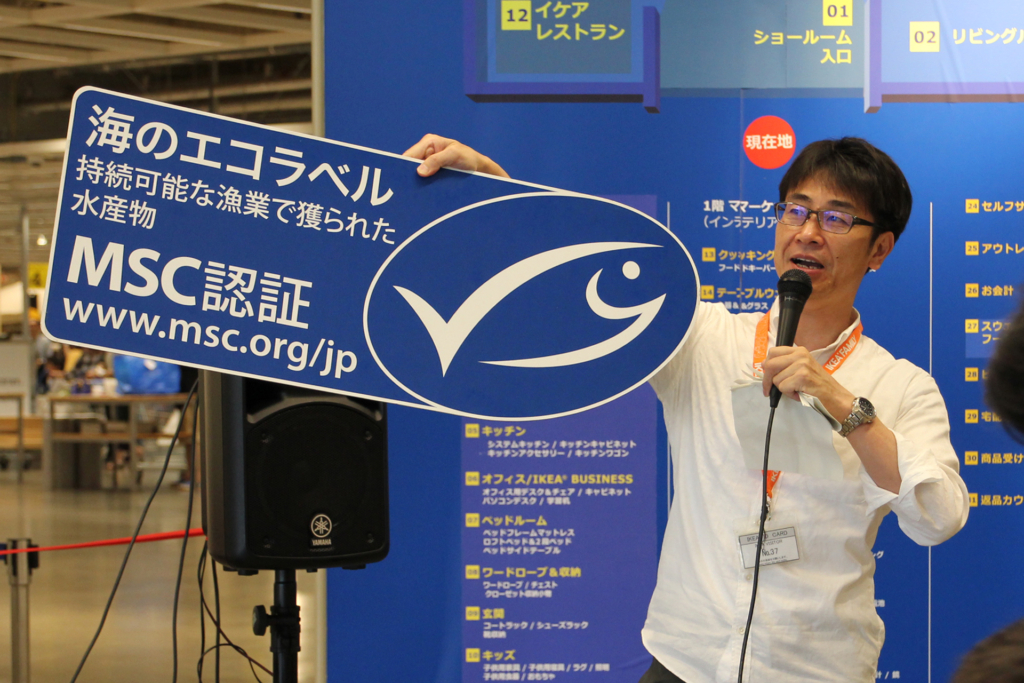
In my current job, I can get the sense that my work is directly linked to the increased adoption of sustainable seafood and sustainable fishing practices. Back when we were having difficulty promoting MSC certification, I used to wonder about whether I was on the right path, but now, I know that my hard work will pay off in spreading awareness of MSC, which makes me more willing to give it my best effort. We don’t have a retirement age, but I am getting close to that point. With the support of my trustworthy staff, I think I will continue doing my best for a little while longer.
Kozo Ishii
Born in Hyogo Prefecture in 1964. After graduating from the National Fisheries University, he worked for a food products company and earned a Master of Public Affairs in Environmental Policy and Natural Resources Management from Indiana University in the U.S. After 1997, he worked on regional development and environmental projects in developing countries as a senior researcher at the International Development Center of Japan. Since the establishment of the MSC Japan office in May 2007, he has been working as Program Director to promote MSC certification and MSC ecolabelling for seafood products in Japan.




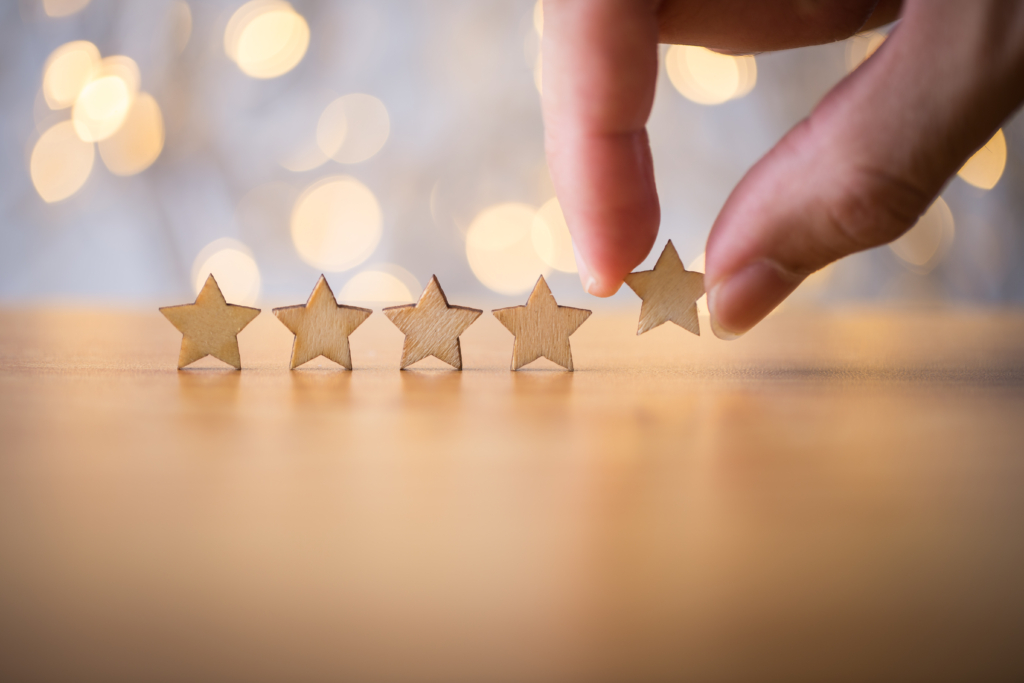




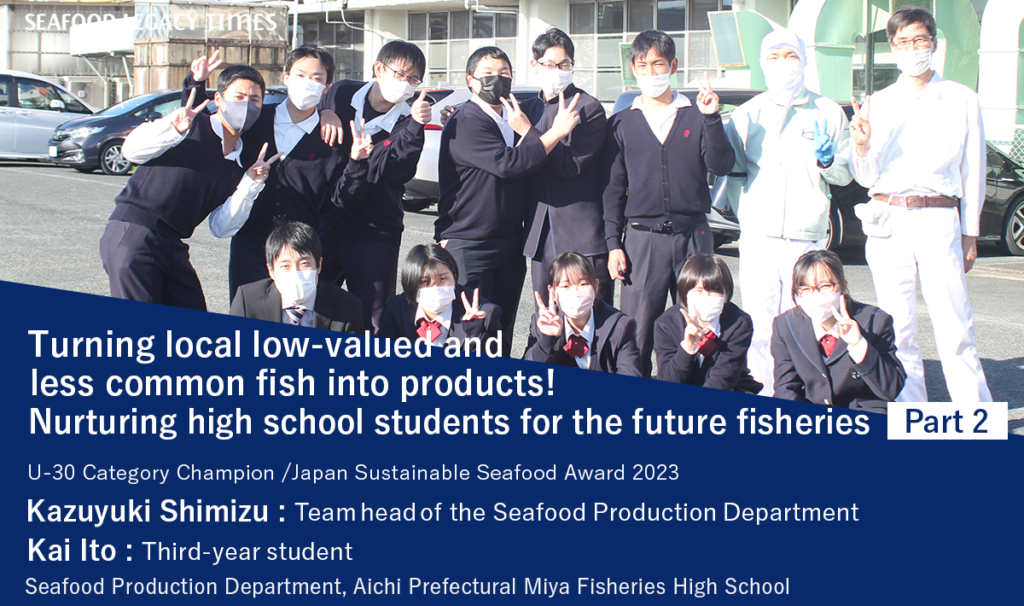
-1024x606.png)


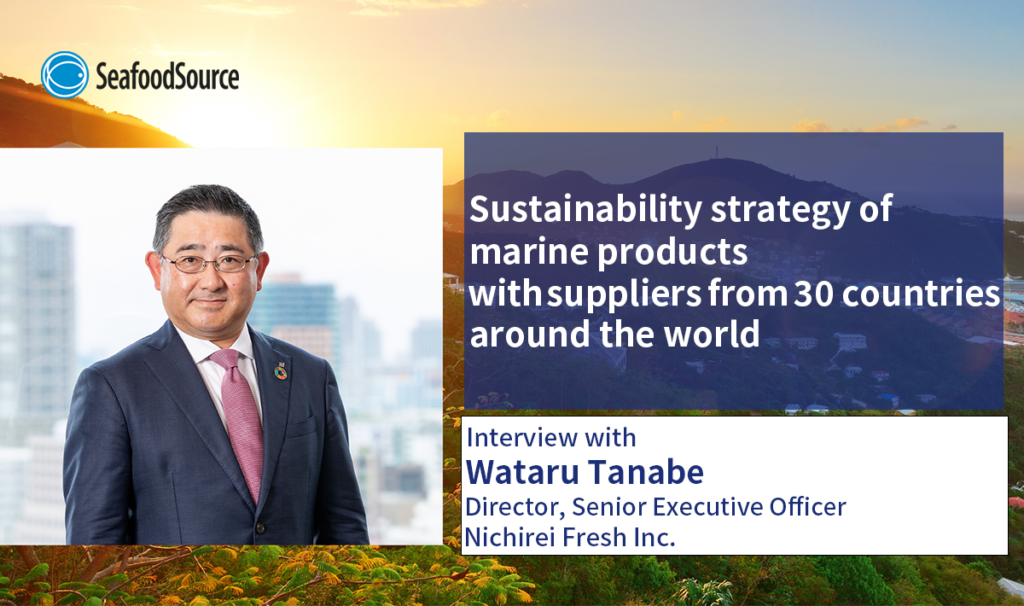
_-1024x606.png)

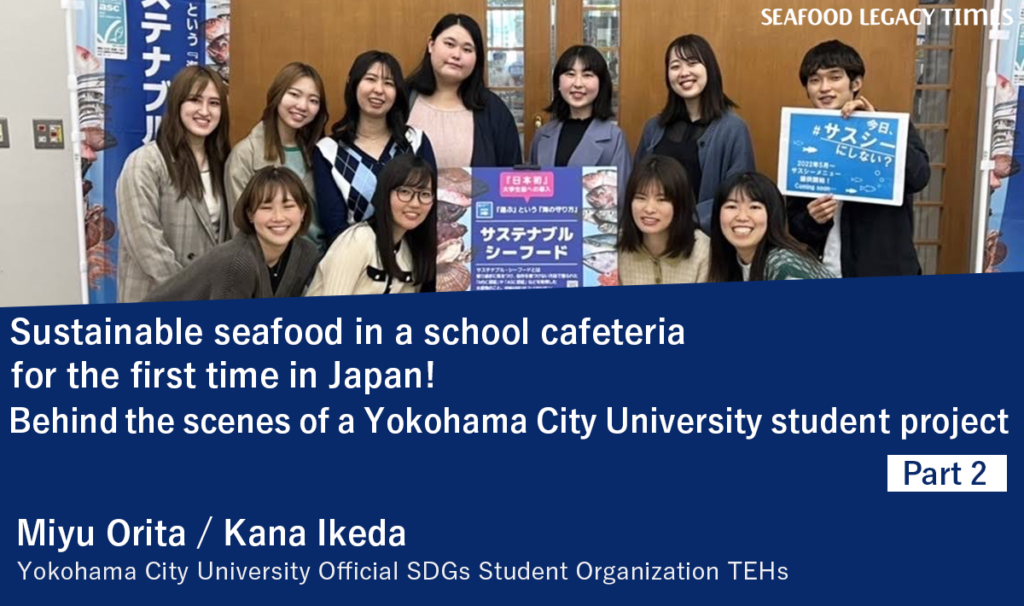
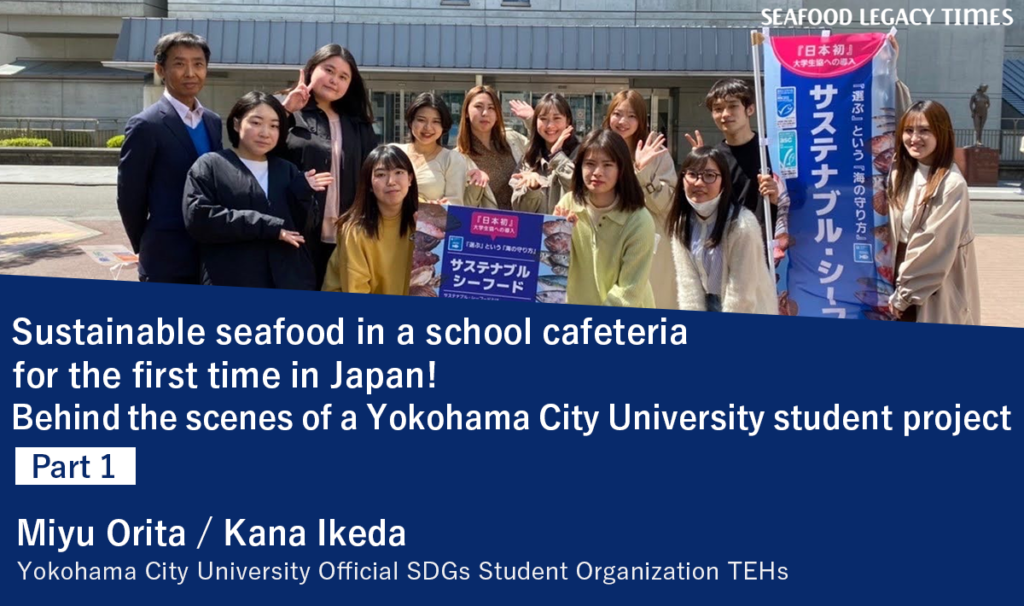
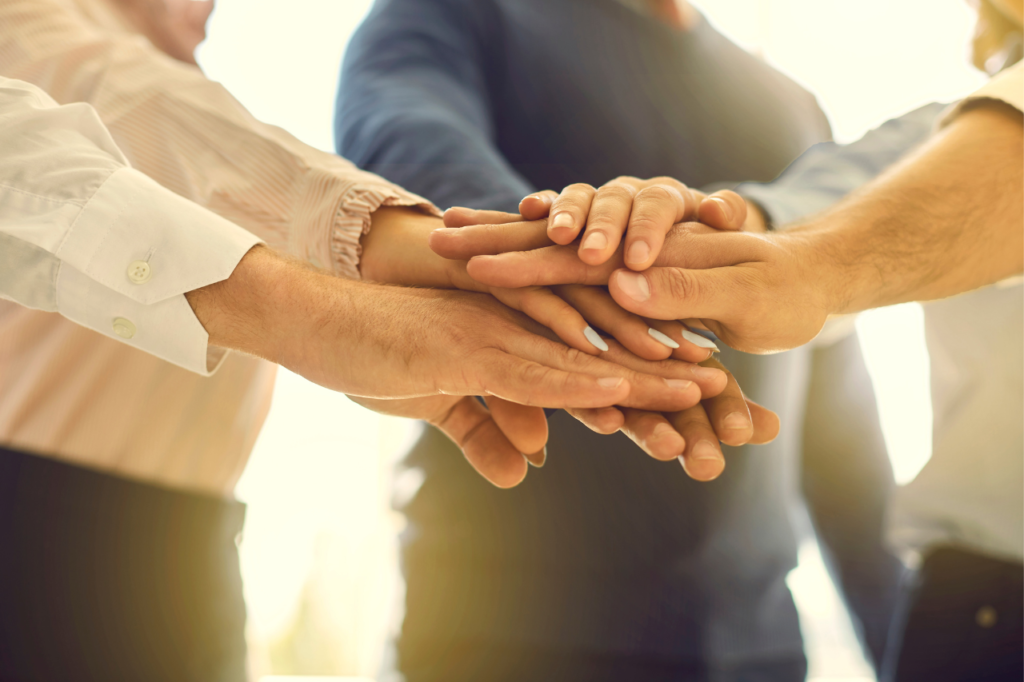


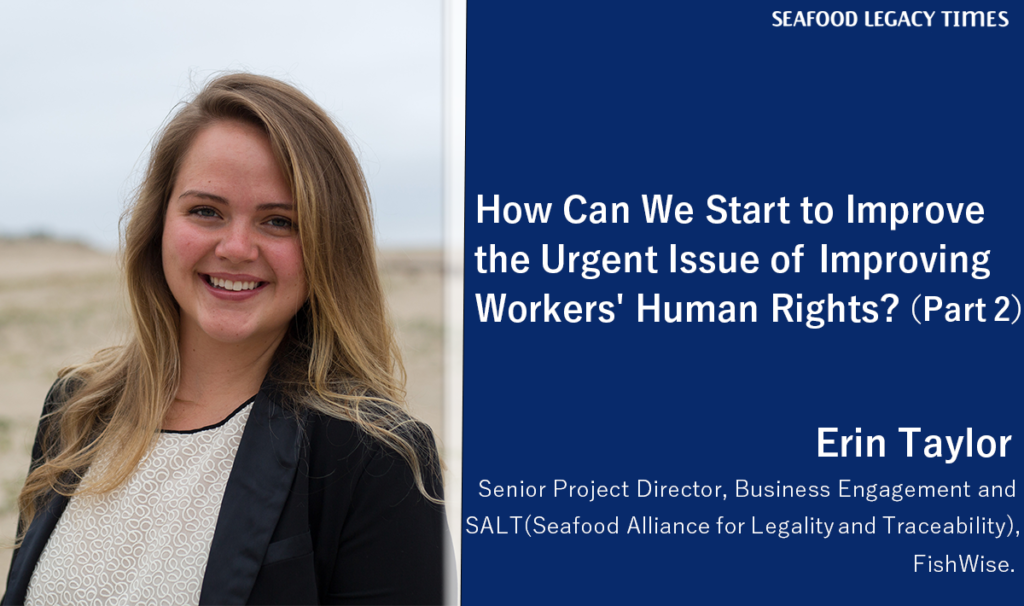
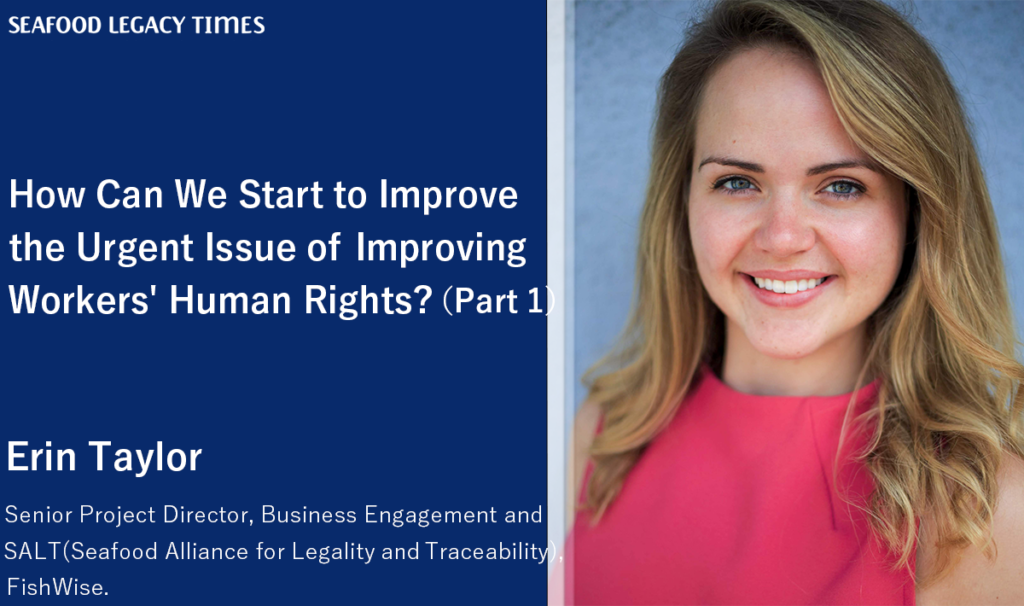
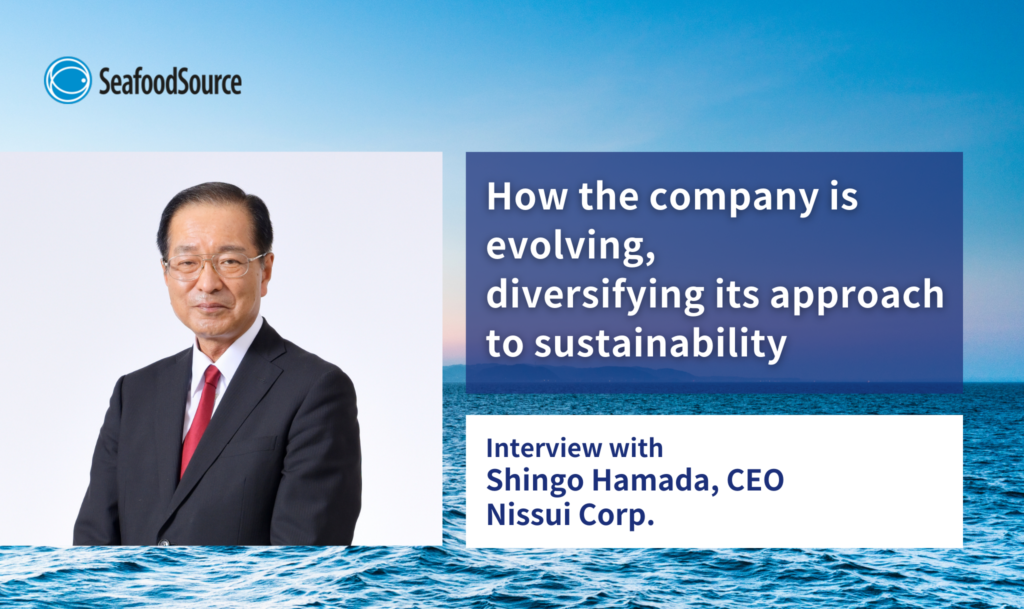




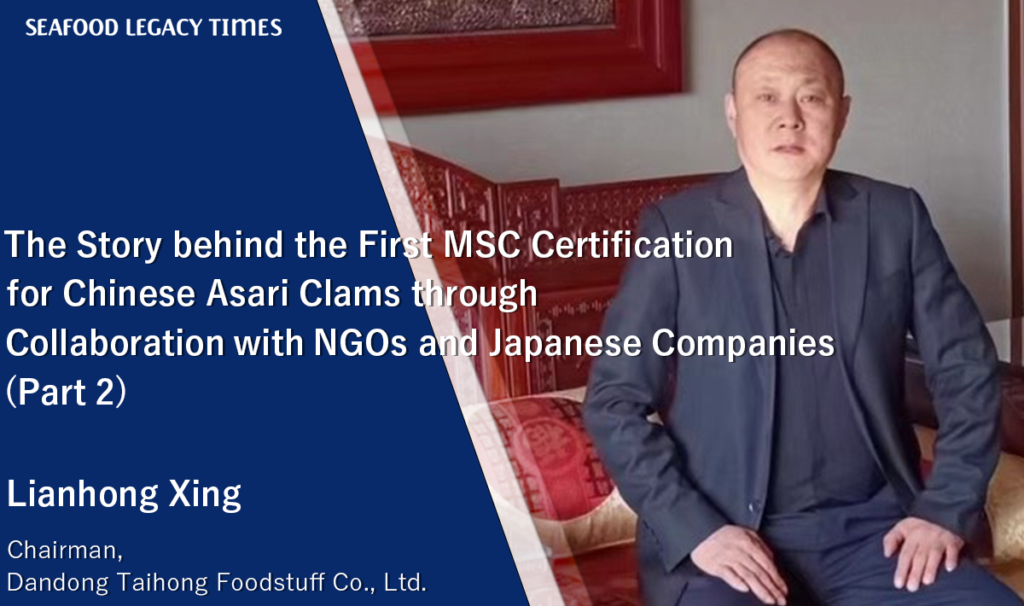
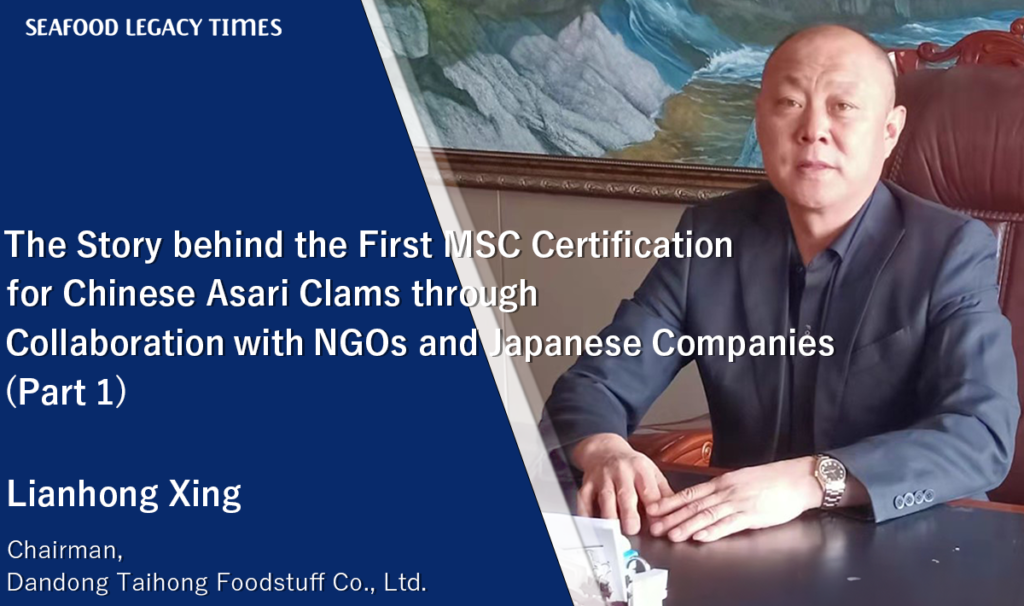

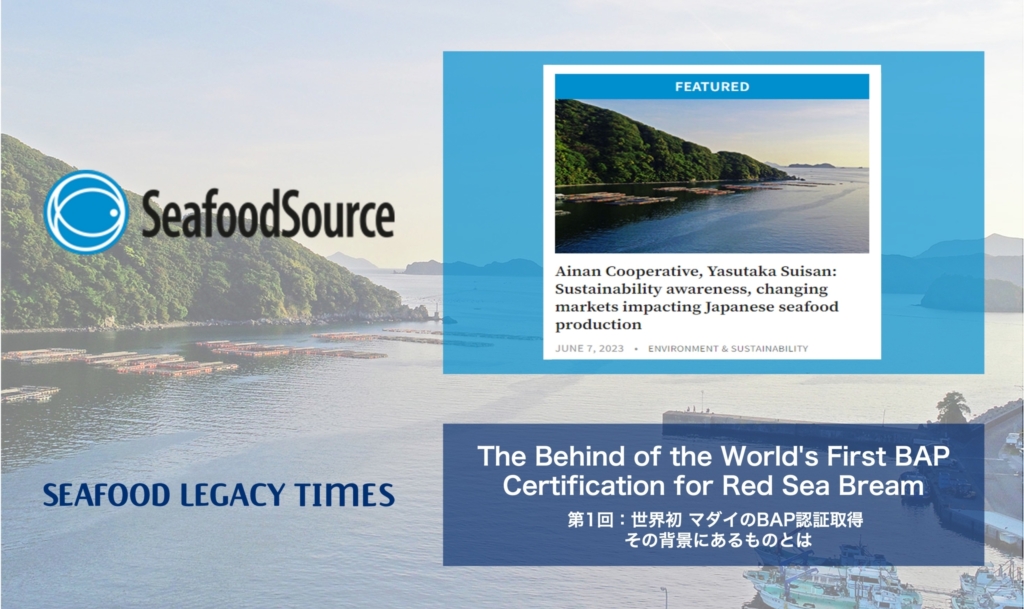

1_修正524-1024x606.png)


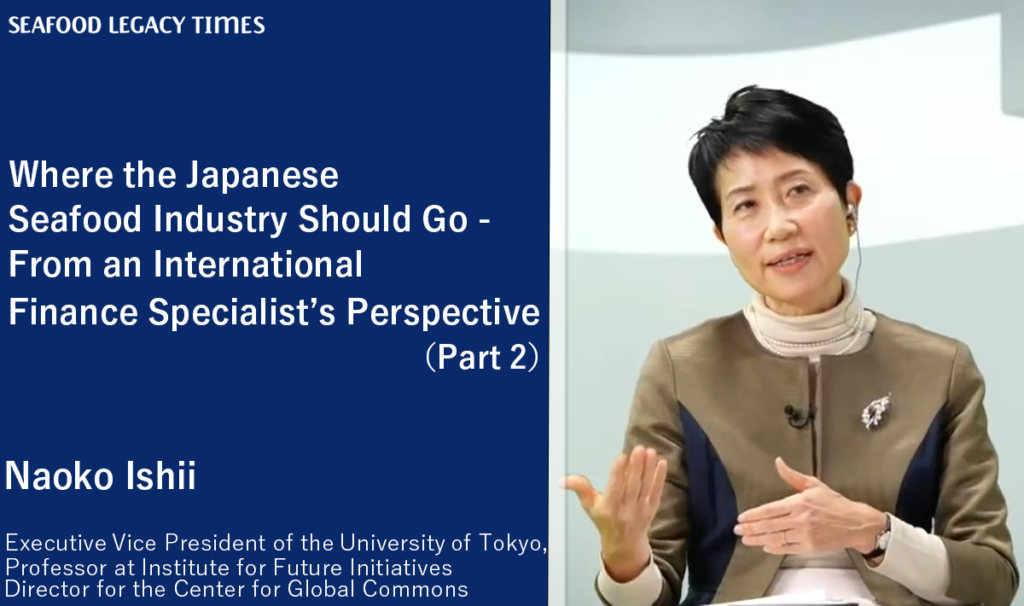







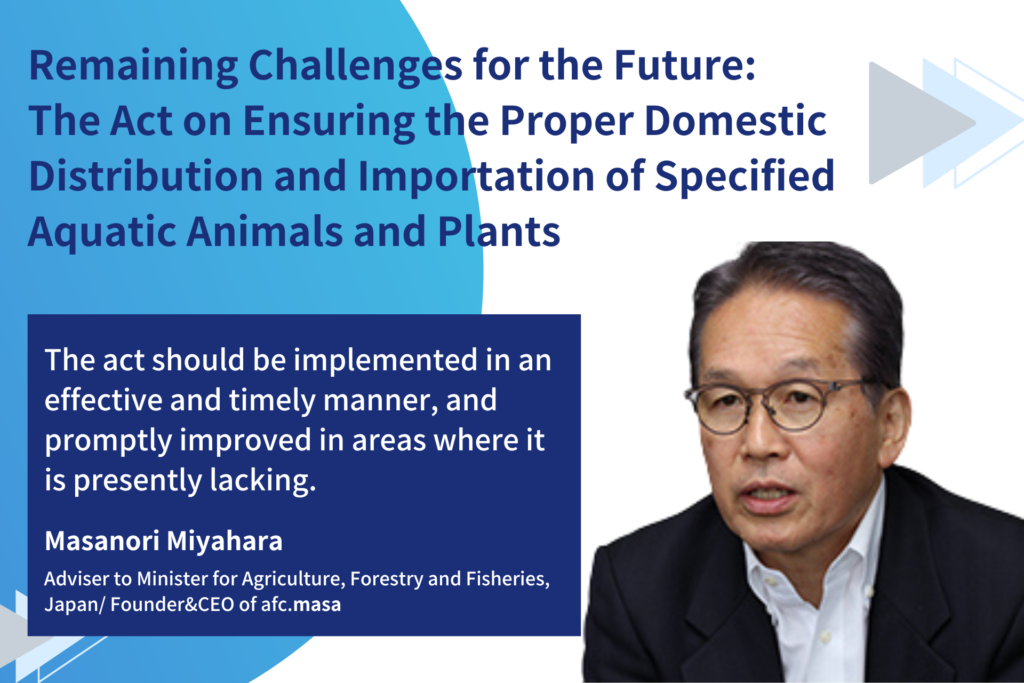
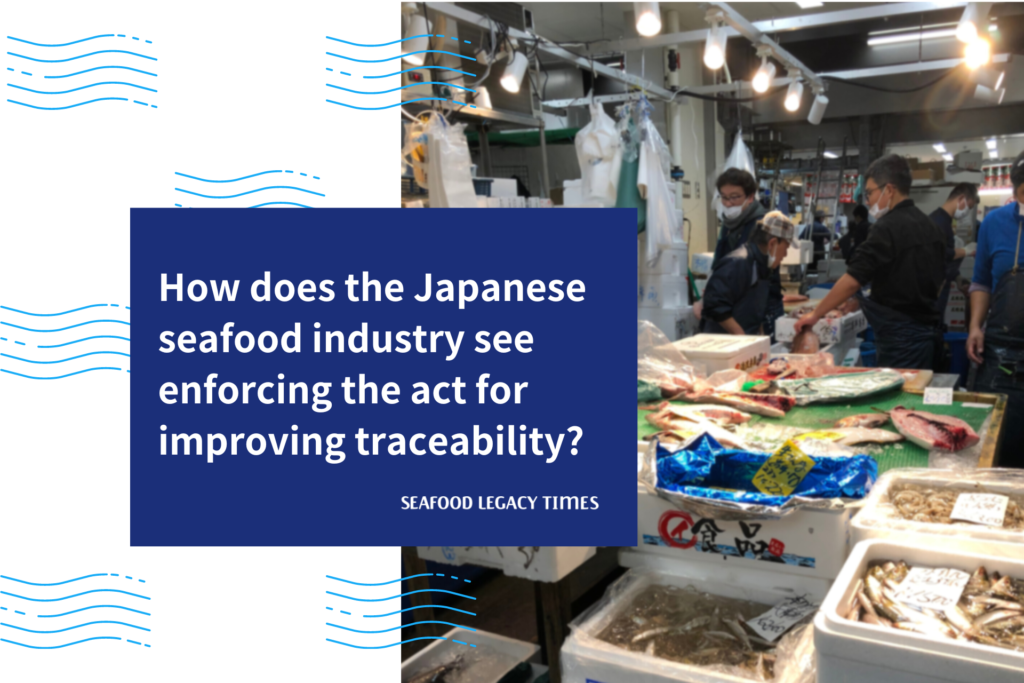



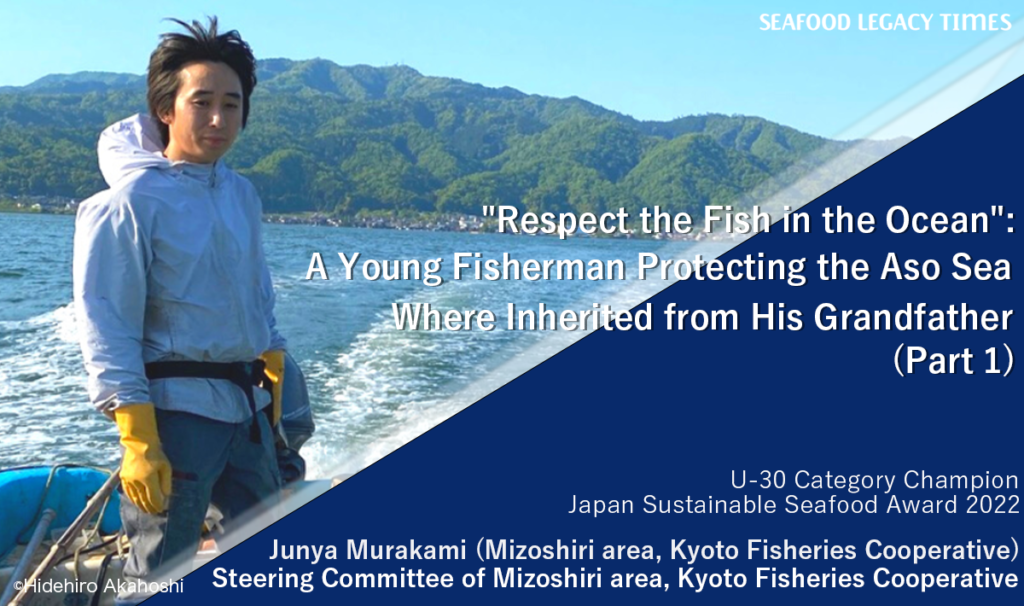
.2-1024x606.png)
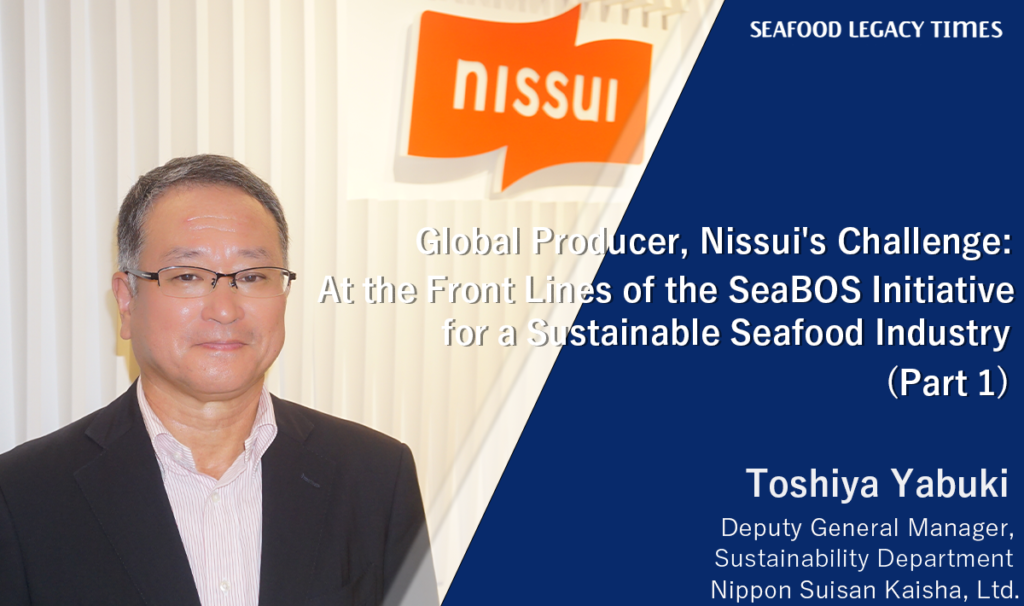
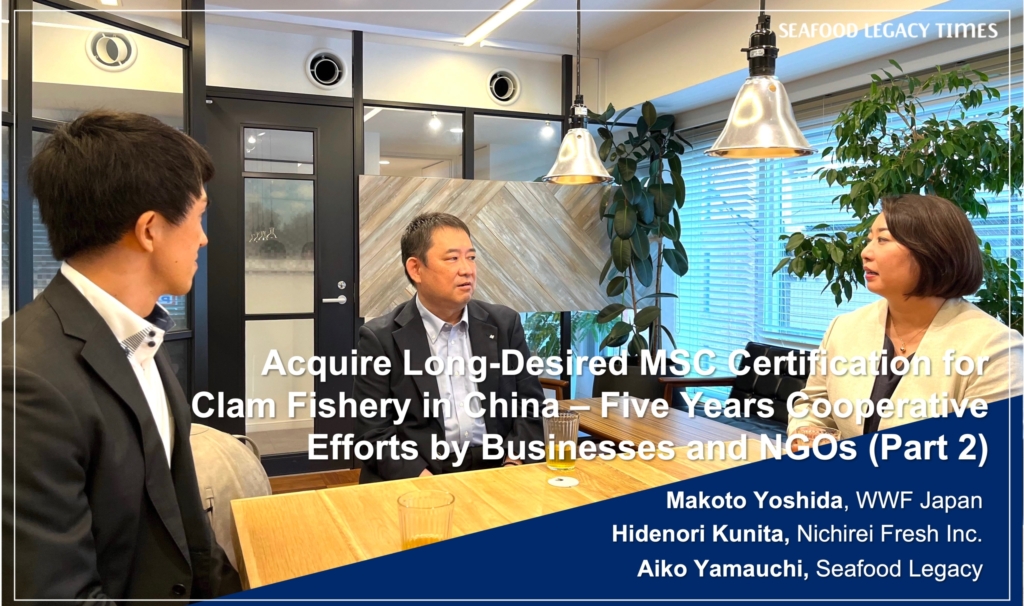
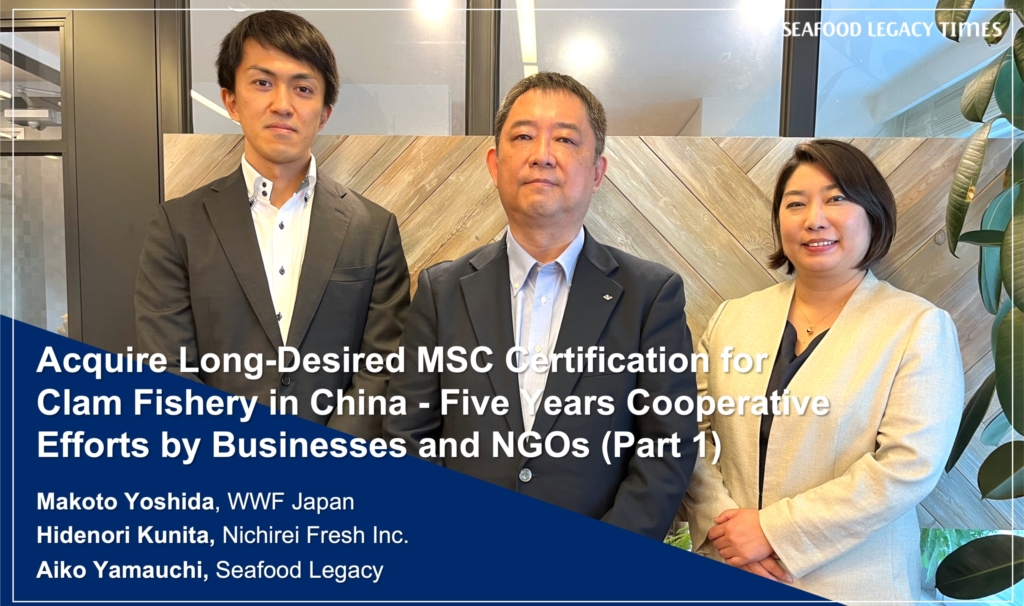






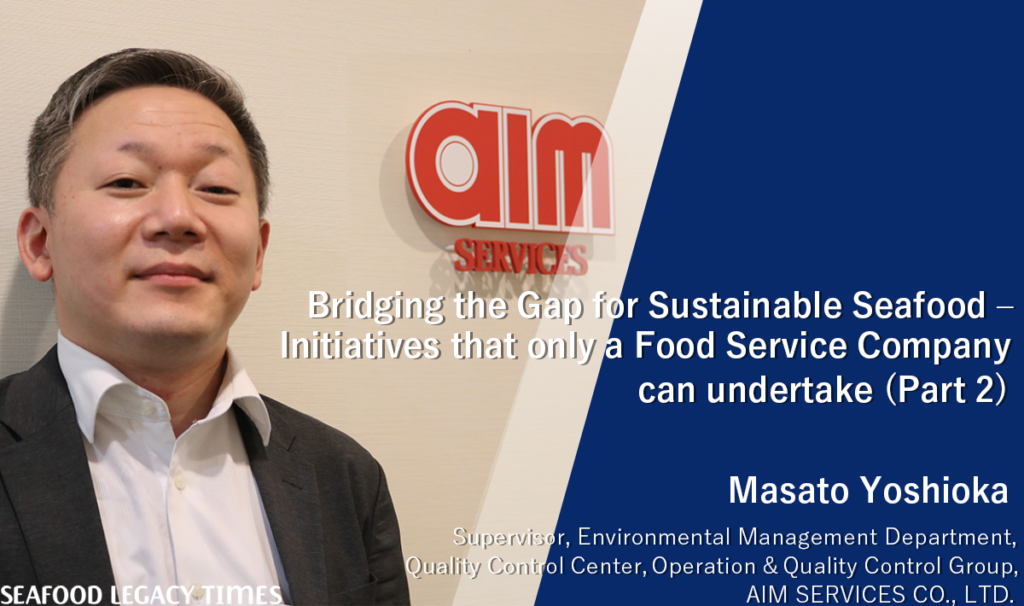
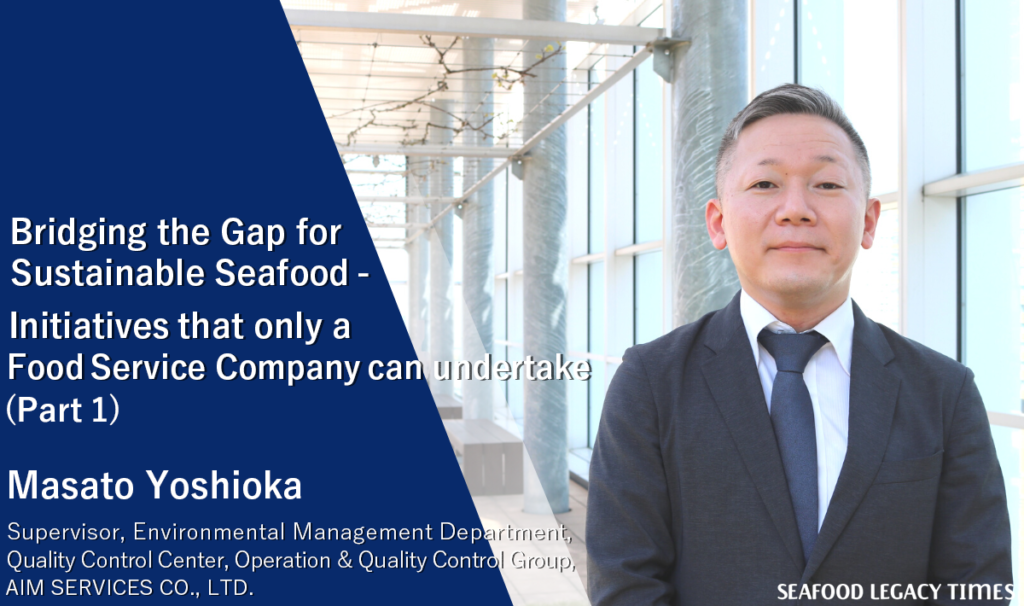
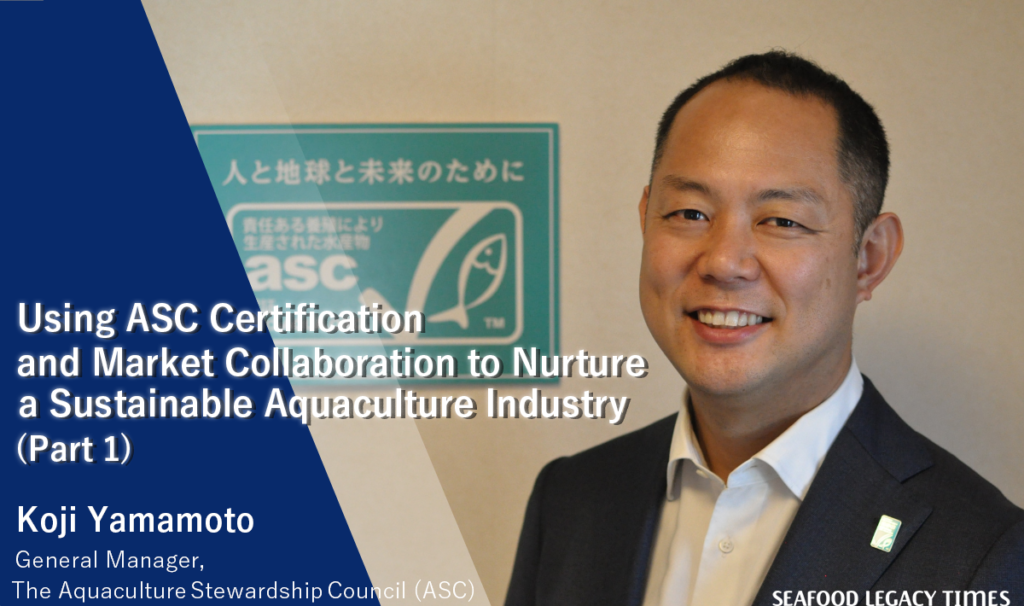
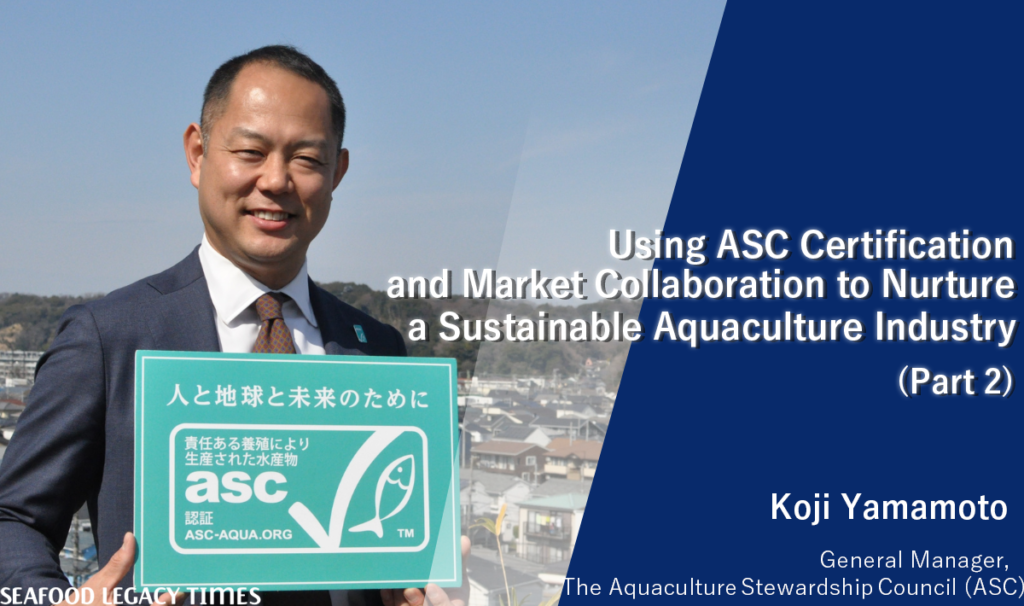
2-1024x606.png)
-1-1024x606.png)
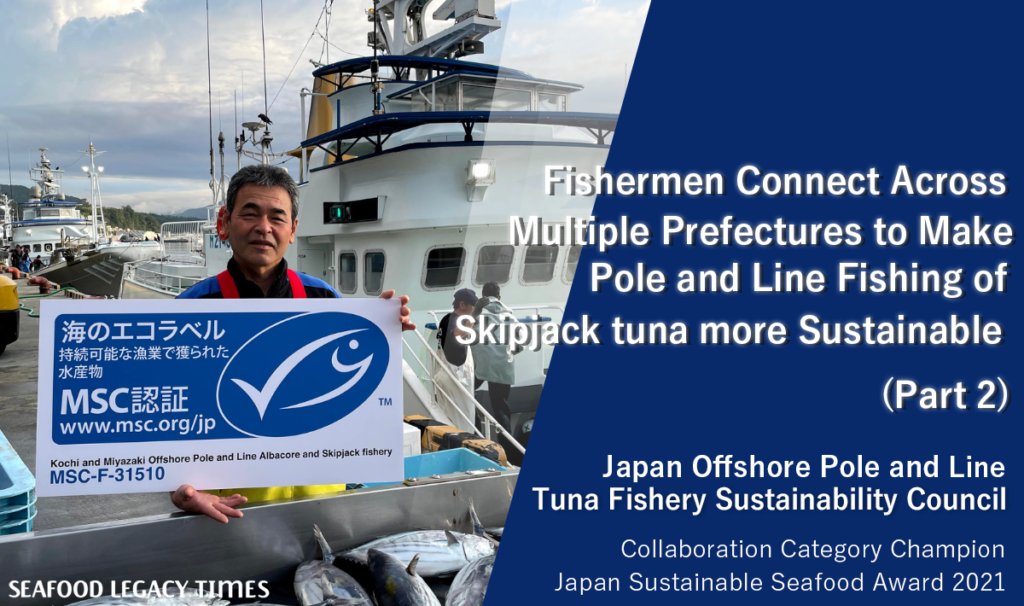
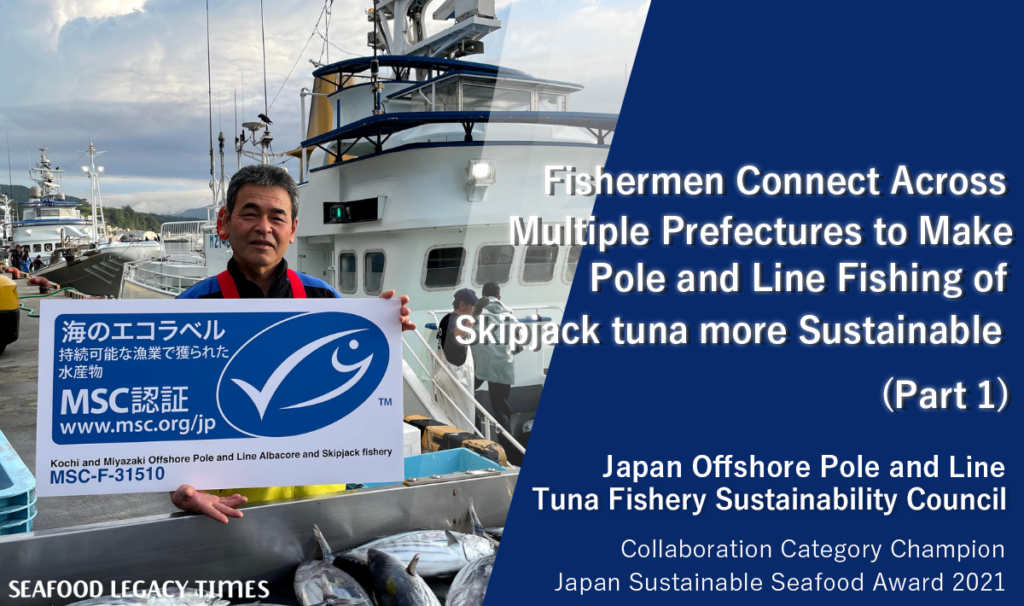
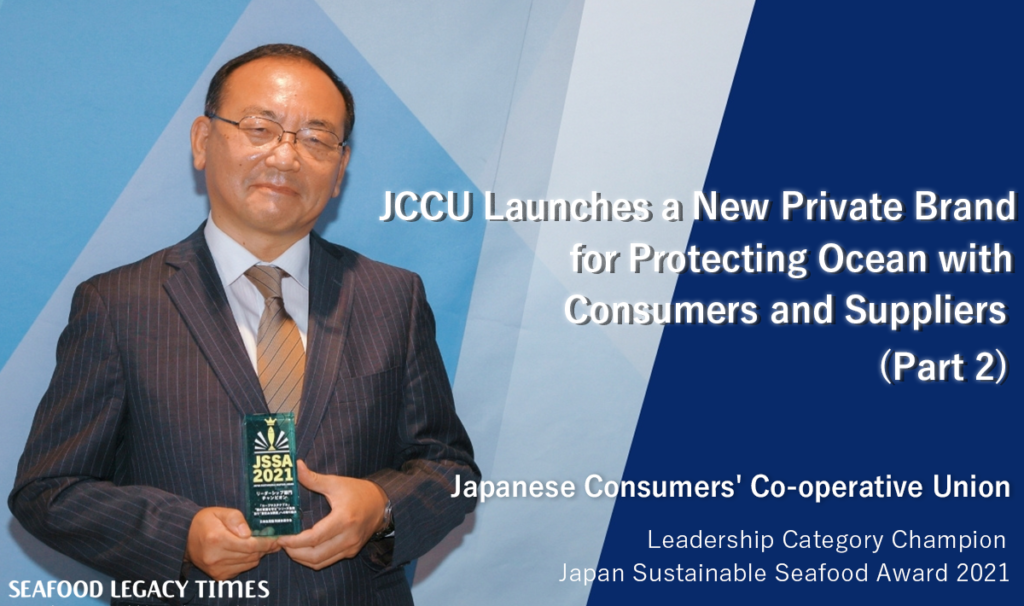
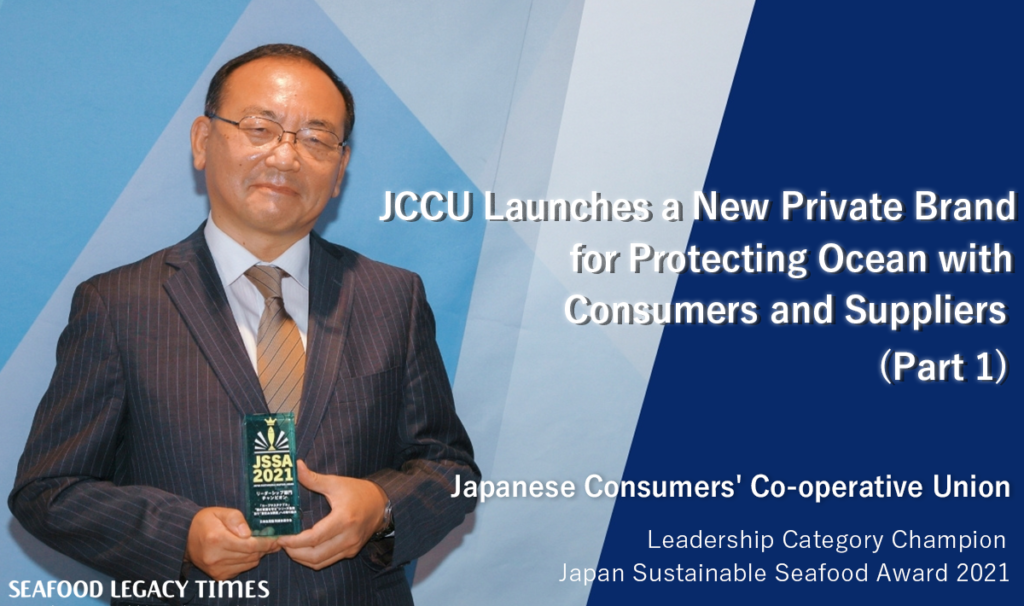
Part2-1024x606.png)
Part1-1024x606.png)

